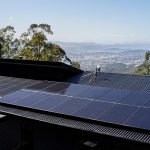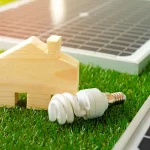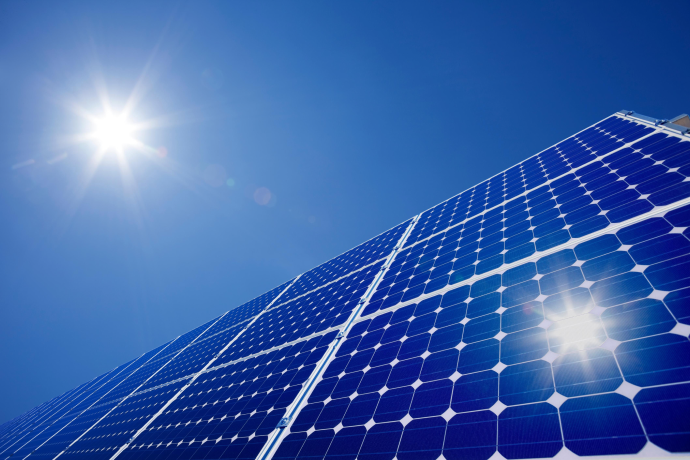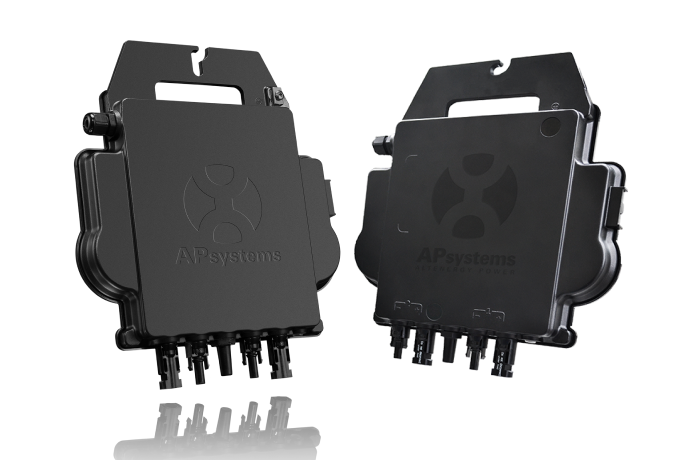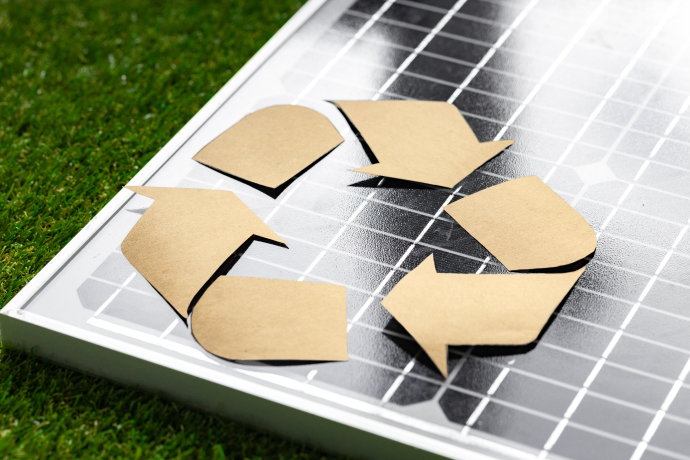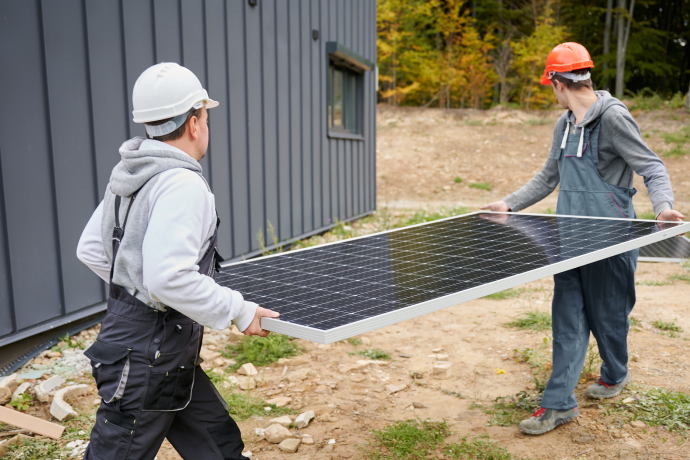When considering installing solar panels it is natural to think about how long they will last. Most solar panels should last for 25 to 30 years which is considered the system’s “useful life”. By useful life we mean solar panel production is 90% in the first ten years and 88.90% at the end of their 25-year warranty period. After that, solar panel production may decrease further although there will still be energy produced, just at a lower rate. How long solar panels last is affected by a number of factors like panel type, quality, location, and maintenance schedule. Our article explains everything you need to know about solar panel longevity, what happens when solar panels degrade, the longest lasting solar panels, why degradation occurs and how to prolong the life of your solar panels.
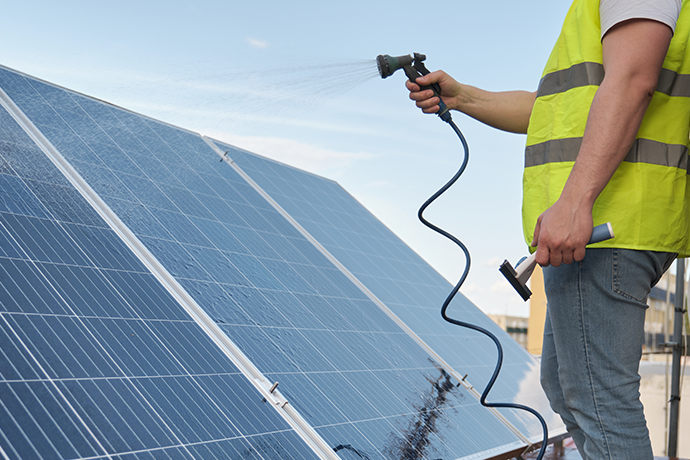
What Affects Solar Panel Lifespan?
The average lifespan of solar panels is 25 to 30 years but this can be affected by factors such as solar panel quality, installation quality, maintenance, location and climate. We look at how these elements can impact solar panel degradation and cause solar panels to have a shorter lifespan.
- Solar panel quality: The quality of the panels may have an impact on the lifespan. High quality solar panels are less susceptible to degradation and equipped to withstand environmental factors like extreme heat or wear and tear. The better the quality of the solar panel, the more efficiency and longevity.
- Installation quality: Professional installation is crucial to solar panel longevity and performance. Installing solar panels is a complicated process. Installers need to assess the roof before solar panels are even chosen. Once assessed the solar panels need to be securely mounted, positioned in the right place, and adequately ventilated. Without using professional installers, there is the risk of loss of insurance, warranties and even rebates.
- Maintenance: Regular maintenance is essential for solar panel longevity. Solar panels that are free from dust and debris operate at their highest efficiency as they are able to receive the maximum amount of sunlight. Periodic checks help to identify any obstructions to the solar cells or issues like loose wires or damaged cells that could lead to something more serious if left undetected.
- Location and climate: Location and climate have a significant impact on the lifespan of solar panels. A location that has constant storms, hail and high winds may cause solar panel damage which will decrease longevity. Any extremes in temperature like hot weather will cause the panels to degrade at a faster rate as solar panels work most efficiently in locations with moderate temperatures.
What Is Solar Panel Degradation?
Solar panel degradation is when solar panels lose their ability to absorb as much sunlight and convert it to energy. As the photovoltaic cells produce less power it is known as the degradation rate. This occurs because of external factors like weather which causes trauma to the panel and reduces its ability to produce electricity.
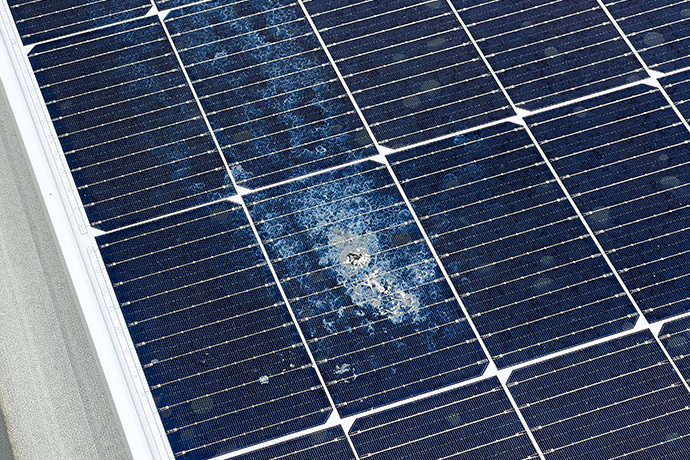
What Causes Solar Panel Degradation?
Solar panel degradation is caused by wear and tear over time and environmental factors. The causes of degradation can be categorised into three main areas – light induced degradation, potential induced degradation, and age related degradation.
- Light induced degradation (LID): Light induced degradation occurs when solar panels are first exposed to the sun and UV rays after installation. This is when solar panels degrade at the fastest rate from 1% to 3% in a short period of time. The first 1000 hours are when this LID occurs but after that, solar panel degradation slows down significantly.
- Potential induced degradation (PID): When solar panels are exposed to UV radiation over long periods of time, it will cause some degradation. PID occurs when the elements of electricity, high temperature and humidity converge. This causes an unwanted electrical current flow in the cells which ultimately leads to panel degradation. PID does not always occur in solar panels and is dependent on weather and climate conditions.
- Age related degradation: Solar panels naturally deteriorate over time and with age. The average lifespan of a solar panel is 25 to 30 years. After that time, solar panels are less efficient but still able to produce electricity.
What Affects The Solar Degradation Rate?
Solar panel degradation rate is impacted by a variety of factors. Sometimes it is caused by the manufacturer and other times it might be due to location. The reasons solar panels degrade include:
- Quality: If solar panels are made of low quality materials, they will degrade quicker than high quality panels. Some manufacturers may use lower quality components like glass, aluminium, or solar cells to save money and keep costs down. Thin aluminium frames and poor quality solar cells will be more vulnerable to damage. Low quality solar panels may need replacing after just a few years, or drastically decline in efficiency within months.
- Solar panel type: The type of solar panel will have an impact on lifespan. Some solar panels are higher quality and will last longer. Monocrystalline is the best solar panel for longevity, lasting up to 40 years compared to polycrystalline with a lifespan of up to 35 years.
- Installation: Professional management and correct storage of solar panels will affect the degradation rate. Panels that are not handled properly can be damaged with microcracks and scratches which will ultimately result in faster deterioration.
- Maintenance: If solar panels are not properly maintained, they can degrade at a faster rate. Solar panels need to be regularly maintained to remove any dust or debris and identify any mechanical issues that need to be fixed.
- Weather: Extreme hot and cold weather, snow, rain and hail can have an impact on solar panel degradation rate. Dramatic temperature changes cause the solar components to contract and expand which can cause cracks and other issues that decrease solar panel lifespan.
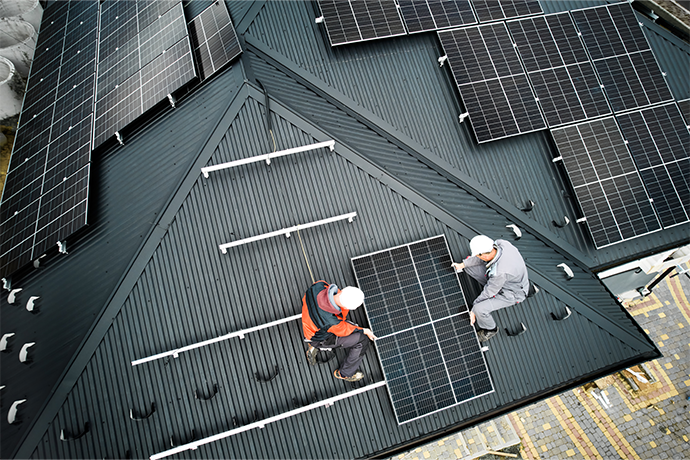
How To Make Your Solar Panels Last Longer
While solar panels have a lifespan, there are some ways to make them last longer to get the most out of them. To make your solar panels last longer, these practices can help.
- Regular cleaning and maintenance: Clean solar panels regularly to make sure they are not covered in dust or dirt. Your location and environment will impact how often solar panels need to be cleaned, but usually once every 6 to 12 months is sufficient. Professional maintenance every one to two years will help make solar panels last longer as any small damage or mechanical issues can be dealt with before becoming an irreversible problem.
- Choose a safe location: The right location is imperative for solar panel longevity. Solar panels that are placed near things like trees that could cause physical damage will decrease the lifespan of the panel.
- Monitoring system performance: By monitoring the solar system performance regularly, you will be able to detect and address any potential issues with the solar system, and preserve longevity. Solar system monitoring not only ensures maximum efficiency but can be an indicator of panel damage and malfunction.
Solar Panel Warranties: What You Need To Know
When looking at solar panel longevity, it is important to understand solar panel warranties as the warranty is related to how long the manufacturer expects your solar panels should last. While you might get told your solar panel warranty is 25 years, this does not include the entire system. The performance warranty might be for 20 years but the inverter warranty may only cover 10 to 12 years. The four different types of warranties are explained below.
- Panel performance warranty: The panel performance warranty covers the solar panel’s ability to generate electricity over its lifetime and warranty period. Usually the panel performance warranty will be about 25 years. The panel performance warranty often specifies unit degradation over that period at around 10% to 20% over 25 years. A standard panel performance warranty will indicate performance at 90% production for the first decade, then about 80% after 25 years.
- Panel product warranty: The product warranty covers faulty products and is a warranty against defects. Usually the panel product warranty will be about 10 to 15 years. Better quality solar panels may come with a product warranty of 25 years. This warranty is one of the most important to consider as it covers underperformance of the panels if they are faulty.
- Inverter product warranty: Solar inverters are the heart of the solar system and their warranty is often separate to the panel warranty. The solar inverter is the equipment that converts direct current electricity (DC) to alternating current electricity (AC) required for use in homes. These inverters have a significantly lower warranty than panels as they are not expected to last as long. Most inverter warranties are just 5 to 10 years. However, different types of inverters can have larger warranties.
*The different inverter product warranties are as follows:
| Inverter type | Warranty estimate |
| String inverter | 5 to 10 years |
| Micro inverter (attached to rail) | 10 years |
| Micro inverter (attached to panel) | 25 years |
| Hybrid inverter | 5 to 10 years |
| Battery inverter | 5 to 10 years |
- Installation warranty: When a company installs your solar system they will provide an installation warranty. This usually lasts for 5 to 10 years, and covers any issues or damage due to poor installation.
How To Make Sure Your Solar Warranty Is Good
In order to make sure you are getting the best deal on your warranty, research and ask the manufacturer, installers or suppliers as many questions as possible. The warranty provides some financial protection against the cost of the solar system and installation so it is important to know what you are covered for. Some warranties have clauses that void the warranty in cases of shade or installation problems. It is important to have a good idea of what you do and don’t get in your warranties so you can be confident the warranty covers issues you are concerned about. Some key questions to ask about solar panel warranties are:
- What is the warranty period for panel performance?
- What is the warranty period for panel products?
- What is the warranty period for the different inverters?
- What is the warranty period for installation?
- What do the different warranties cover?
- What would void the warranties?
- What is the warranty on components like cables used during installation?
Signs Your Solar Panels Might Be At The End Of Their Lifespan
While solar panels generally last for 25 to 30 years, there are ways to tell if your solar panels are coming to the end of their lifespan. There are four main signs that your solar panels might be at the end of their lifespan. These are:
- Decreased performance and output: A major drop in performance and output is the first sign that solar panels might be coming to the end of their lifespan. For new solar panels, this may not be the case and other factors could have contributed to decreased efficiency. However, for solar panels that are over 20 years old, a noticeable drop in solar power output is a valid indicator solar panels may need to be replaced.
- Physical damage: Physical damage is an obvious sign that a solar panel system may be at the end of its lifespan. When panels are cracked or shattered, they may need to be replaced.
- Discolouration or burn marks: Yellow or brown discolouration or burn marks on the panel’s conductor strips are a sign of corrosion. If this occurs, solar panels are at the end of their lifespan and will need to be replaced.
- Age: Solar panels last for a significant period of time, with most lasting at least 25 years. However, when solar panels age beyond that time, they start to lose efficiency significantly and eventually come to the end of their lifespan.
Most solar panels have a lifespan of about 25 to 30 years which makes them a worthwhile investment. However, it is still important to understand solar panel longevity when contemplating installing solar panels. In our article, we have explained what solar panel degradation is, how it is caused, signs your solar panels are not working properly, and how to get the most out of your solar panels. For further information, speak with a solar expert today at Tasmanian Safer Solar.

